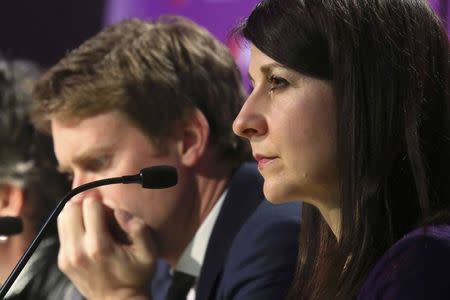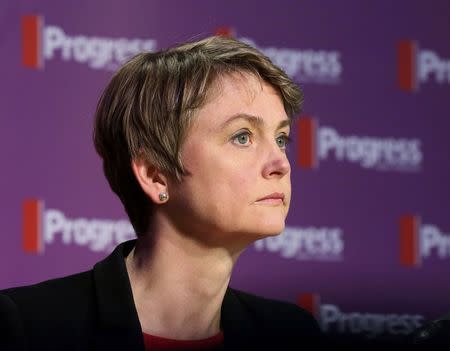Labour needs to rebuild economic credibility - leadership frontrunner
LONDON (Reuters) - The Labour Party, which suffered a crushing defeat in last week's election, must rebuild its economic credibility and become more supportive of the business world to return to power, said Andy Burnham, the frontrunner in Labour's leadership race. Labour's failure to enter the British government after the May 7 election cost party leader Ed Miliband his job, paving the way for a new face to lead one of major parties in British politics. The Conservative Party sealed its win by promising economic stability against Labour Party policies that were largely seen as anti-business. Andy Burnham, leading betting shops' odds to become the Labour Party's next leader, said at a conference in London on Saturday the party had to overcome several obstacles. "Number one: economic credibility. We have to get that back. Number two: our relationship with business. We must be a pro-business party," he said. Burnham, the party's health spokesman, is vying for the leadership position next to Labour's home affairs spokeswoman Yvette Cooper, Liz Kendall, also a health spokeswoman, and Mary Creagh, a spokeswoman for international development. Tristram Hunt, education spokesman, said at the same conference he would be making an announcement regarding his candidacy ambitions next week. The closely fought race to replace Miliband has already produced unexpected results. Previous frontrunner Chuka Umunna, the party's shadow business secretary, withdrew his candidacy on Friday, saying he was uncomfortable with the increased scrutiny of his private life. "What I'm focusing on now is we've got a Queen's Speech coming up. There's going to be a budget on July 8, that is going to have a tremendous impact on the people in this community," Umunna told Sky News on Saturday. Chancellor George Osborne announced late on Friday he would take the unusual step of a second annual budget in order to spell out how he will make further public spending cuts and boost the country's economic prospects. (Reporting by Karolin Schaps; Editing by Rosalind Russell)

 Yahoo News
Yahoo News 


